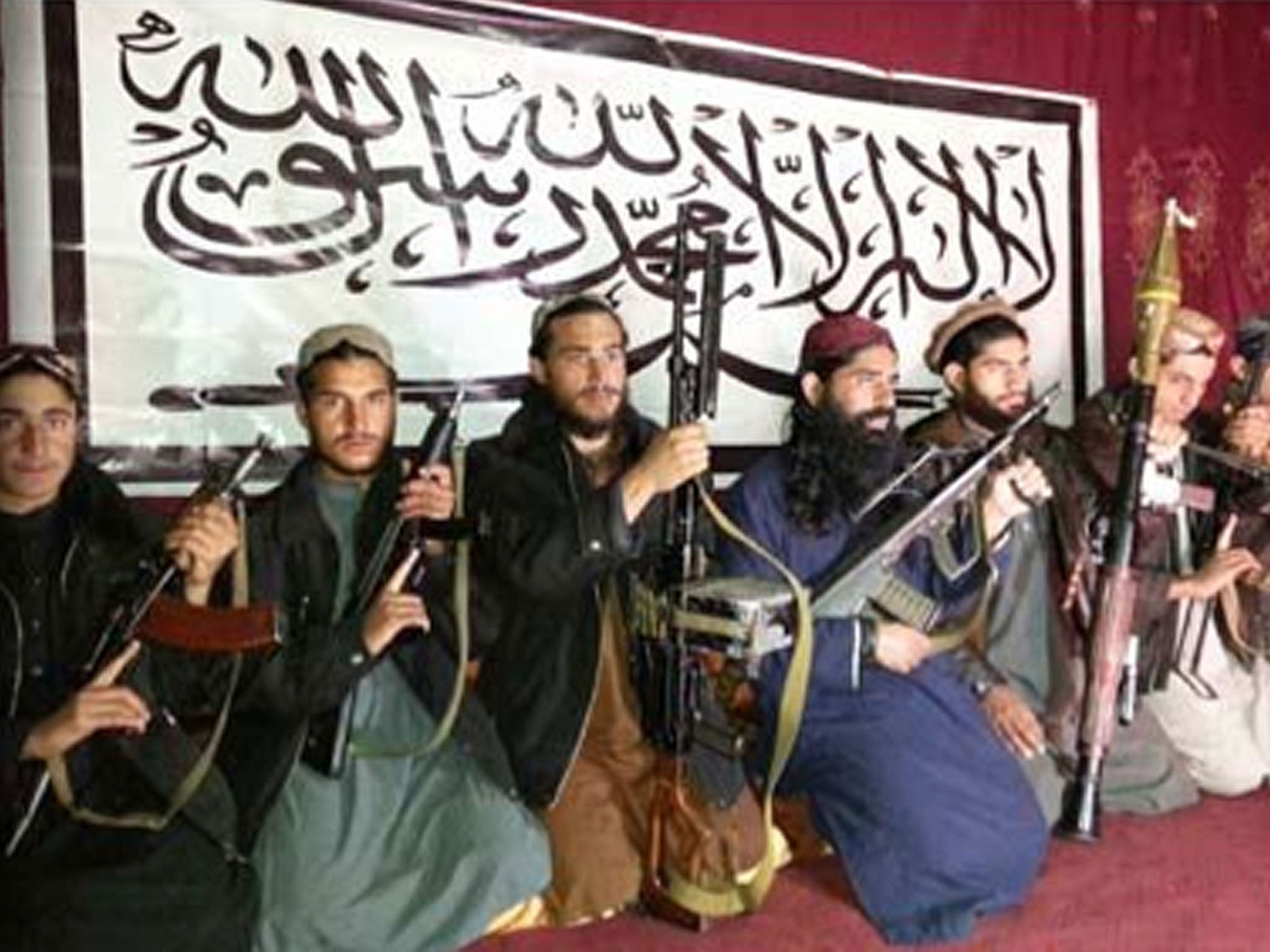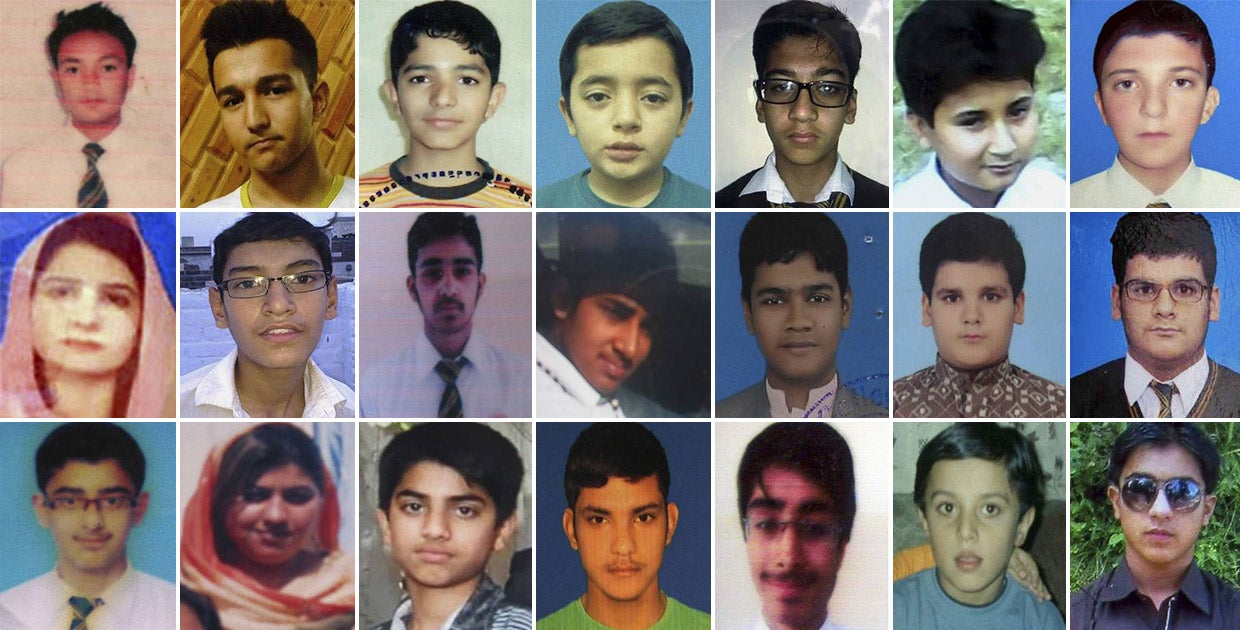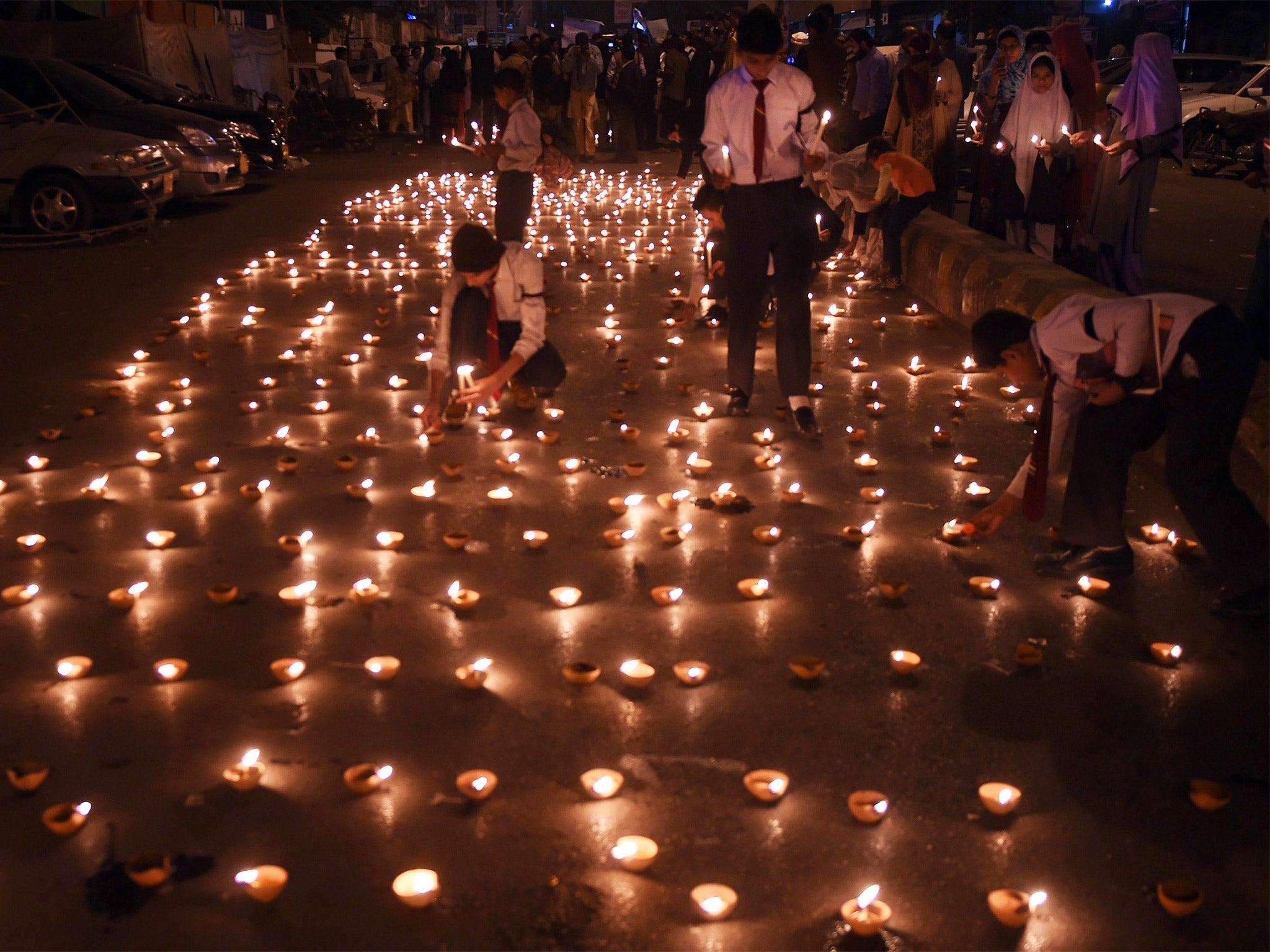Peshawar school attack: As the Taliban release pictures of the gunmen responsible, Pakistan takes a new approach to terrorism
PM Nawaz Sharif announces united front across political parties after attack that killed 148. Peter Popham discovers the terrible human costs and analyses the hopes for progress

Your support helps us to tell the story
From reproductive rights to climate change to Big Tech, The Independent is on the ground when the story is developing. Whether it's investigating the financials of Elon Musk's pro-Trump PAC or producing our latest documentary, 'The A Word', which shines a light on the American women fighting for reproductive rights, we know how important it is to parse out the facts from the messaging.
At such a critical moment in US history, we need reporters on the ground. Your donation allows us to keep sending journalists to speak to both sides of the story.
The Independent is trusted by Americans across the entire political spectrum. And unlike many other quality news outlets, we choose not to lock Americans out of our reporting and analysis with paywalls. We believe quality journalism should be available to everyone, paid for by those who can afford it.
Your support makes all the difference.With the death toll in the Peshawar Army Public School massacre rising to 148 overnight, Pakistan turned over a new leaf in its approach to terrorism today.
That was the message delivered by the Prime Minister, Nawaz Sharif, sitting shoulder to shoulder with Imran Khan, his most trenchant critic, in Peshawar as he swore that politicians would bury their differences and unite to defeat terrorism. Their meeting came as a photograph of the men who attacked the school was released by the Pakistan Taliban.
“We must not forget these scenes,” Mr Sharif said, “the way they left bullet holes in the bodies of innocent kids, the way they tore apart their faces with bullets.”
He announced the removal of the ban on the death penalty for terrorist offences which had been in force since 2008. Mr Sharif lifted the ban last year, but re-imposed it when he launched peace talks with militants.
The same message of determination and unity came from the new Afghan President, Ashraf Ghani, who met in Kabul with the heads of the Pakistan army and the Inter-Services Intelligence, Pakistan’s powerful military intelligence agency, to discuss joint strategies.
A recent, unprecedented visit to Pakistan by Mr Ghani has helped dispel decades of mistrust between the Islamic neighbours. The fear, with some Pakistani politicians blaming militants on the Afghan side of the border for facilitating the school massacre, is that the new understanding could unravel. That in turn could provide more leeway to terrorist groups operating across the long and highly porous border.
As the second of three days of national mourning dawned and the funerals of the many dozens of victims, including 132 students, got under way, more horrifying details emerged of how the massacre unfolded. On Tuesday morning seven members of Tehreek-e-Taliban, Pakistan’s extremist Islamist terrorist group, modelled on the Afghan Taliban yet distinct from it, broke into the Army Public School by scaling a ladder at a back entrance, then making their way to the school’s auditorium where a class of 13-year-olds including Ehsan Elahi were learning first aid from army instructors.
Ehsan said he heard the sound of approaching gunfire. “Our teachers and instructors asked us to calm down,” he said, “but the sound of the bullets came closer and closer. In the next minute, the glass of windows and doors in the hall were smashed by the bullets. Some people started kicking the hall doors.”
Panic erupted among the 100-odd students and staff in the hall. “Everybody was trying to find a place to hide but there were no such places in the hall. Everybody was crying. I jumped behind a bench and lay on the ground.” Then, he said, the attackers burst in and started “spraying bullets like hell”.

He went on: “I saw army instructors falling on the ground first. I saw many of my friends getting bullets on their heads, chest, arms and legs right in front of me. Their body parts and blood were flying like small pieces of cotton in the classroom. Warm blood and flesh of my friends fell on my face and other parts of my body. It was horrible.”
Ehsan was struck by two bullets in his right arm but restrained himself from screaming in pain in order to stay alive. “I did not cry because it meant death,” he said. “They were not ready to leave alive even a single person present in the hall.”
An army spokesman confirmed that more than 100 died in the hall.
Among those buried in funerals today was the headmistress, Tahira Qazi. When the attackers tracked her to her office, she ran to the bathroom and locked herself in. But the attackers threw a grenade in through a vent, killing her.
Mr Sharif declared that there could no longer be any distinction between “good and bad Taliban”. “This conference expresses profound grief over the tragedy which has no equal in history,” he said. “Terrorism and the fight against extremism is our fight. To defeat it we must unite to defeat terrorists and root out their hideouts… All parliamentary and political leaders will decide a national consensus to defeat terrorism.” He said a counter-terrorism plan will be formulated by next week.

Pakistani military intelligence is credited with the secret creation of the original, Afghan Taliban as a way to retain “strategic depth” in Afghanistan and counter the influence there of other countries in the region, especially India. Sympathy with Islamist views among senior army officers and the century-long challenge of bringing law to the tribal regions in the north-west of the country that border Afghanistan have given the Pakistani Taliban the oxygen to develop from small groups of fanatics into a ruthless army of fundamentalists bent on toppling the Pakistani state.
But the Peshawar massacre has stunned and shaken the public like few previous events. Conspiracy theories blaming the attacks on India or America can be expected to gain ground, and most Pakistani media have refrained from using the ambivalent term “Taliban” to describe attackers. But the sombre message from Mr Sharif was that there would be no more talk of peace, and that the army’s counterattack on the group would be devastating.
The Afghan Taliban issued a statement expressing its condolences over the “incident” and mourning alongside the families of the killed children. “The intentional killing of innocent people, women and children goes against the principles of Islam,” the group’s spokesman, Zabihulla Mujahid, said.
Peshawar was a sea of funerals. Among mourners was Akhtar Hussain, tears streaming down his face as he buried his 14-year-old son Fahad. “They finished in minutes what I had lived my whole life for, my son,” he said through his tears. “The innocent one is now gone in the grave and I can’t wait to join him there. I can’t live any more.”
Join our commenting forum
Join thought-provoking conversations, follow other Independent readers and see their replies
Comments